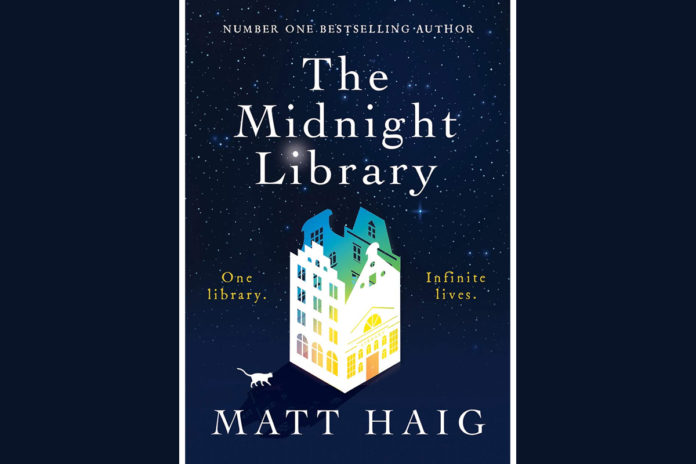The Midnight Library is a novel that intersects perfectly between fantasy and contemporary fiction. It follows Nora Seed, a woman overwhelmed with depression and anxiety, riddled with regret, and ready to end her life. When she attempts suicide, she find herself in limbo between life and death at the midnight library. Here she has the chance to read books that contain alternate universes where she took a different life path — like one where she’s married to her ex-fiancée or another where she didn’t give up swimming. The Midnight Library is a touching and inspiring journey that explores mental health and the meaning of life as Nora questions whether or not she wants to fight to stay alive.
What makes this novel’s portrayal of mental illness especially effective is that the author, Matt Haig, has first-hand experience with depression. At the age of 24, Haig stopped one step away from a cliff’s edge where he planned to kill himself. From there he sought help, began to write about his depression, and inadvertently became a spokesperson for mental health. In The Midnight Library, Haig offers an authentic and empathetic narrative to Nora’s struggles, and writes her depression in a realistic way, where she grieves over her loss of potential, blames herself for everything, and feels there’s no way out. It very much represents the internal struggle of depression, where thoughts are consumed with tearing yourself down and overthinking mistakes.
The story that follows is one that’s nuanced and moving as Nora regains her will to live. When Nora pursues different lives she feels would’ve fulfilled her, she quickly realizes that the grass isn’t always greener on the other side. Each life comes with its own host of issues that she didn’t consider.
Haig points out that this is especially relevant to our current Instagram, aesthetic-centric culture: “I also think nowadays, because of the internet and social media and comparison culture, we are surrounded by other people’s lives, if not our own versions of our lives, so there is always a reason to feel bad about yourself.”
Nora also comes to terms with the fact that she’s been living her life to please others, and although she’s made decisions in her best interest, those are the ones she especially regrets because she feels she let others down. To explore these concepts, Haig uses the theory of parallel universes in a fun way and even dives into some philosophical concepts about what it means to be human. Ultimately, Nora discovers that she doesn’t need a radically different life to find happiness.
The library itself is an interesting concept that feels properly fleshed out, although not without some hand-waving with its set of rules. Every time Nora explores a life that turned out different, she not only reads it like a book, but she assumes the body of herself in that life without any of her prior memories. Sometimes this’ll be right before a public speaking event, or other times she has to have conversations with loved ones while pretending she knows what’s going on. As for the rules that govern the midnight library, they make sense, but at the same time it’s not explained if Nora is experiencing the library during a coma, if time is paused in her root life, or if it relies on some other magical element. There’s also an instance where Nora meets someone else who’s also visiting their version of the midnight library, a “slider.” This intriguing plot point doesn’t really go anywhere, and should’ve been further explored or just not included.
This book is absolutely a read that those struggling with maintaining normalcy during the pandemic can find solace in. The pandemic has meant a major shift in how society functions, and so many have struggled with relationships, financial hardship, job stability, illness, losing loved ones, and loneliness. The Midnight Library serves as a beautiful reminder that things can always get better, and it does so without beating readers over the head or offering a sugar-coated solution to complex issues.
If you’re short on time or energy, seeking a fun summer read, or just looking for a book that’s an easy four or five stars out of five, pick up The Midnight Library. The message it offers is uplifting, and serves as a reminder that it’s never too late to make a change.
Image: The Midnight Library. Matt Haig.
Chandy is a biology major/chemistry minor who's been a staff writer, Arts editor, and Managing Editor at The Cascade. She began writing in elementary school when she produced Tamagotchi fanfiction to show her peers at school -- she now lives in fear that this may have been her creative peak.




